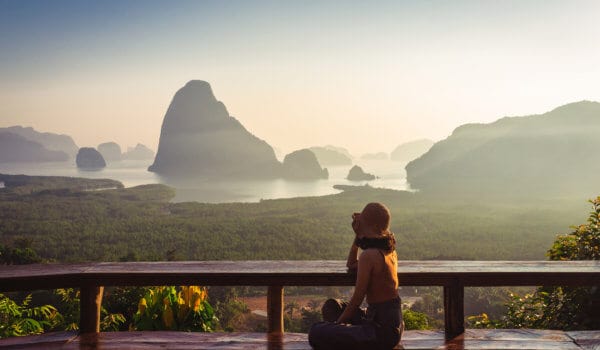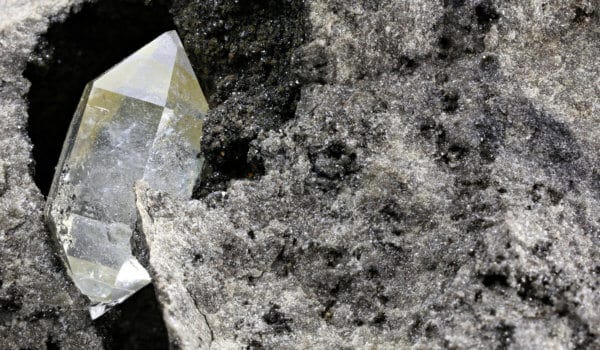Nineteenth century Romanticism – especially when combined with supernatural powers – doesn’t ever seem to get old, even more than a hundred years after it was first introduced. At least not for Dvořák's masterpiece Rusalka, which conquered world when it was new and still plays on. The fairy tale story with a theme of love and death has been successfully performed all over the world. Join us today to travel to the secret location where Antonín Dvořák found his inspiration for the magical place that we know as Rusalka's lake.
Antonín Dvořák was born into a butcher´s family; and as he was the oldest son, it was assumed that he would continue in the family tradition. But the life of a butcher didn´t seem to be Dvořák´s destiny as he followed another trait that ran in the family – music. While most of the Dvořák family‘s members had an inclination towards music as a form of an entertainment for their spare time, Dvořák had a talent that went far beyond just that.
After musical studies in Prague, he acted for several years in the orchestra of The Prague Provisional Theatre under the baton of Bedřich Smetana. There he had the opportunity to meet a young actress called Josefina Čermáková. She made a strong impression on Dvořák, though she didn´t reciprocate his feelings (from this period came Dvořák’s inspirational cycle known as Cypresses). She instead married Count Vaclav Kounic – Dvořák’s future brother-in-law. Dvořák later married Josefína’s younger sister Anna and stayed in a friendly familial relationship with them for the rest of his life.
And here starts our trip…


Current memorial of Antonín Dvořák, former mansion of Count Kounic and his wife.
Count Kounic gave his new wife a small mansion in Vysoká u Příbramě, in the Pribram district, Czech Republic, as a wedding gift. Dvořák and his family were often their guests. The house and its surroundings enchanted Dvořák so much that when he finally could afford to do so, he bought a piece of land with an old farmhouse at the opposite end of the village, not too far from his brother-in-law. After restoring the farmhouse, it became his second home for nearly two decades. He spent almost every summer here with his family, arriving in May and departing in September or October.


The summer house of Antonín Dvořák named Rusalka.
The summer house, named Rusalka after the composer‘s death, was essentially a peaceful place where he could engage in his favourite activities. Apart from composing, he loved gardening, breeding pigeons, and taking long walks through the neaby forests.
To understand his desire for serenity, one would need to go back into history. The initial years of Dvořák‘s life were not too easy, especially from the financial perspective. Not only did his family struggle with their business, but he himself had to contribute to keeping the family running. He and his wife had to take extra jobs. And far worse, all three of their children suddenly died in infancy within two years of one another. That created an emotional turmoil that he was able to endure only by taking on extra work. Later, when he became successful and well known, he and his wife were able to bring another six children into the world and bring them up.

Small pond also named Rusalka in honor of Dvořák´s most famous master piece.
The libretto for Rusalka, written by Jaroslav Kvapil, is a story inspired by fairy tale characters created by two Czech authors, K.J.Erben and B. Němcová. Rusalka is a water spirit who falls in love with a prince and is willing to undergo a transformation to become a human being even though it might have fatal consequences. Because of Dvořák‘s close connection with the Vysoká estate, one of the small ponds in the vicinity of the former Kounic mansion (now a memorial and museum honoring him) is named Rusalka. It doesn’t take much imagination while visiting it to remember the popular aria “Song to the Moon.“
As mentioned above, the Antonín Dvořák Memorial is in the former Kounic Vila and is open daily, except Mondays, depending on the seasson. More info. The entry fee is just CZK 50.


The park in Vysoká with several little ponds andthe woods in its vicinity.
The park is open for a longer period of time each day, until 8pm.
The Rusalka Lake and the summer house (which is not open to the public) are part of the mansion park and are therefore accessible otherwise.
The Rusalka Lake is located only about half a kilometer from the mansion. The Vila Rusalka is on the opposite side of the village and, except for special occasions, is closed to the public.
Access from Prague:
The Prague – Příbram bus operates fairly frequently and takes about 50 minutes. Change buses in Příbram for Vysoká u Příbramě, the journey takes another 15 minutes.
By car it is a pleasant one-hour drive on D4, exit on 41 km.
Photos: Martina Advaney
Support us!
All your donations will be used to pay the magazine’s journalists and to support the ongoing costs of maintaining the site.
Share this post
Interested in co-operating with us?
We are open to co-operation from writers and businesses alike. You can reach us on our email at [email protected]/[email protected] and we will get back to you as quick as we can.









